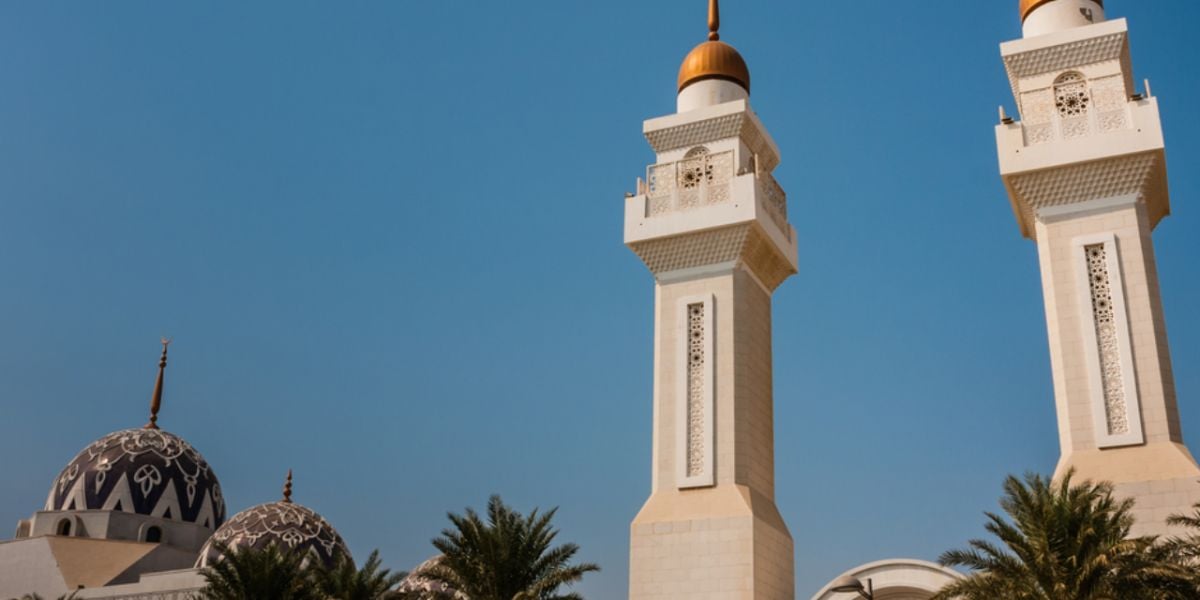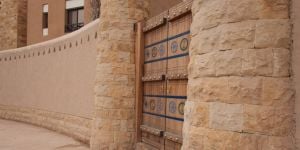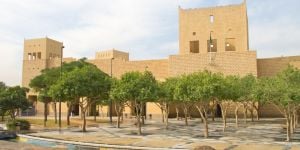
Saudi Arabia may not be one of the most well-known educational destinations. In fact, a lot of Saudi nationals do prefer to study abroad. However, in recent years, the government of Saudi Arabia has invested heavily in developing its education system and attracting international students. If you plan to build a career in the Middle East, getting a degree from one of the country's leading universities can definitely be a good start. So here's an insight into higher education in Riyadh and how to enroll.
Higher education in Saudi Arabia
Higher education in Saudi Arabia is quite similar to that of most other countries, and you will find both public and private education establishments here.
Saudi Arabia is home to 29 public universities and 12 private ones. Some of the most popular fields of study include economics, medicine, engineering, teaching, computer science and Islamic Law. There are 78 higher education institutions in total including universities, colleges and institutes.
Private colleges tend to have higher tuition costs but less competitive admissions. They offer both long degrees, certificate programs, and short-term courses.
Note that some universities in Saudi Arabia are fully gender-segregated and offer instruction only in Arabic.
Postgraduate programs are offered on two levels: Master's and PhD. Master's programs typically last two years, whereas a PhD program can take from two and a half to five years. Most PhD programs are fully funded by the government.
Master-level programs in Saudi Arabia are available in a variety of fields, including medicine, business, architecture, and more. Most programs are two years long, but the exact length of the course will depend on whether you are enrolled in the program on a full-time or part-time basis. To apply for a master-level program, you will typically need a bachelor's degree in a related field, a high GPA and recommendations. In addition, you will need to pass an English language proficiency test or present an equivalent test like TOEFL or IELTS.
Universities in Riyadh
There are 16 universities in Riyadh offering a variety of programs. Here are the city's most popular universities:
King Saud University
King Saud University is the first public university in Saudi Arabia, founded in 1957 by King Saud bin Abdulaziz. Over 60,000 students are studying at King Saud University — about 7% are international students. There are a number of programs offered at the university, including degree programs in natural sciences, the humanities, professional studies and more. It's highly rated for its medical programs. There are two languages of instruction: English and Arabic.
Prince Sultan University
Prince Sultan University is a private university founded in 1998. It is the first private university in Saudi Arabia to offer both bachelor's and master's degree programs in various fields. The university includes the College of Business Administration, College of Engineering, College of Law, College of Humanities and College of Computer and Information Science. It has over 3,500 students.
Alfaisal University
Alfaisal University is a non-profit private higher education university founded in 2002. It's one of the smallest universities in the country that is recognized by the Ministry of Education of Saudi Arabia. The university offers bachelor's and master's degrees in several fields of study. It is one of the few international universities in Saudi Arabia, as about one-third of its cohort are international students. The admission rate is around 30%. It has more than 2,500 students.
Al Yamamah University
Al Yamamah University is a private university that opened in 2001. It offers programs in business administration, finance, engineering, architecture, law and computer and information systems. Its aim is to be a leading training institution for academic research, and caters to over 2,000 students. It is known as the first university in the country for its highly effective educational programs in entrepreneurship. Al Yamamah University is located in the north of Riyadh and accepts both male and female students.
King Saud bin Abdulaziz University for Health Sciences
King Saud bin Abdulaziz University for Health Sciences (KSAU-HS) was established in 2005 by King Abdullah bin Abdulaziz. It is one of the first public universities in Riyadh and Saudi Arabia, specializing in medicine and health sciences. There are seven colleges at the university, including the College of Medicine, College of Dentistry, College of Pharmacy, College of Public Health, College of Health Informatics, College of Applied Medical Sciences, College of Nursing, College of Science and College of Health Professions. There are about 10,000 students in Riyadh, and KSAU-HS also has campuses in Jeddah, with 4,000 students, and Al-Hofuf with 3,000 students.
Dar Al Uloom University
Dar Al Uloom University is a private university established in 2008. It offers a variety of programs for both local and international students, with 15 available majors: medicine, computer engineering and information technology, business administration, architectural engineering, and law, totaling about 2,500 students. There is a women's department at the university that focuses on education, English language and computer science.
Riyadh College of Technology
The College of Technology in Riyadh opened its doors in 1983 and is the first technical and vocational college in the Kingdom. The educational programs at the university are aimed at preparing technical professionals. It is one of the most highly rated educational establishments in the city and ranks among the top five universities in the country.
Princess Nourah University
Princess Nourah Bint Abdulrahman University, formerly known as Riyadh University for Women, is a public university and is the largest women's university in the world. It was established in 1970. It offers classes to over 33,000 students divided in three main colleges: Health College, Science College, and Humanities College. It is famous for having the first driving school for women in 2018. It also has an Arabic program for non-Arabic speakers, which allows women from over 40 countries to learn the language.
Costs of studying in Saudi Arabia
Evaluating the cost of studies in Saudi Arabia is rather complicated as it depends on many factors: the educational establishment you study in, the courses you take, the length of study, your options for financial aid, and more. However, a lot of international students do have access to either partial or full scholarships, and, overall, the cost of studying in Saudi Arabia can be much lower than in other developed countries. Tuition fees in universities vary greatly from one university to another. The annual tuition fee ranges from 0 up to SAR 90,000 (USD 24,000). International students spend an average of SAR 11,500 (USD 3,066) a year for a bachelor's degree and SAR 12,800 (USD 3,413), and there is one university where international students can study for free: Jouf University.
Entry requirements in Riyadh universities
Applying to any university in Riyadh is quite straightforward. You will need to complete an application at the university's website and attach your high school degree and transcripts. In some cases, you will need to submit additional documentation to prove aptitude —this depends on your high school program.
After you've been accepted to the university, you are likely to receive student housing paid for by the university: either on or off campus. If the university doesn't provide housing, they will generally help you to find suitable accommodation close to your place of study.
If you choose to search for accommodation yourself, make sure to check our article on Accommodation in Riyadh to help with your apartment hunting.
Student visa in Saudi Arabia
After having chosen your university or other higher education institution, you will have to apply for a student visa. Some of the documents to be produced to apply for a student visa are the following:
- Proof of your successful registration in a recognized university or higher education; institution
- An original birth certificate;
- Relevant fees;
- A detailed medical certificate;
- An extract of your criminal record.
Important:
You cannot work in Saudi Arabia on a student visa. To be legally employed in the country, you will need to have a job offer from a local employer, who will then go on to apply for an Iqama (residence permit) on your behalf. If you try to work in Saudi Arabia illegally and get caught, the penalties can be quite severe. You may have to pay a fine of up to SAR 10,000 and are also likely to be arrested and deported.
Internships in Riyadh
Finding an internship in Saudi Arabia can be quite complicated, as many of these positions are often reserved for Saudi nationals. However, if you are determined, you may try your luck with some of the big local companies working in healthcare, education, finance, manufacturing, information and communication technology, media, and more. While there are many international companies operating in the Kingdom, the internship positions here typically go to Saudi nationals, so applying to local companies comes with higher chances of landing an internship position.
Also, while looking for an internship, pay attention to the booming projects in the framework of Vision 2030. You may view internship offers on the Internet thanks to various specialized job websites and other professional social networks like LinkedIn and Viadeo. You may also register with a recruitment agency.
Social life as a student in Riyadh
Making friends with fellow international students during your time in Riyadh shouldn't be a problem. However, you need to be aware of some social rules and norms to follow when part of Saudi society. For instance, some universities and a lot of classes are gender-segregated, and unmarried people are not supposed to spend time alone with someone of the opposite sex.
Building relationships with Saudi nationals may be a bit more complicated. As the family has a far higher status in Saudi Arabia than in most Western countries, a great deal of mingling happens among relatives. In any case, you should endeavor to meet different people that aren't your adjacent neighbors. University is thus an excellent way to develop your social circle. Attend events with your friends and plan outings together to make your stay a memorable one.
Important:
The first thing to do before moving to Riyadh is to get international health insurance as you will not be covered by the Saudi healthcare system. While some scholarships or universities will help students with their healthcare needs, it is your responsibility to make sure you are covered.
As we've mentioned at the beginning of this article, Saudi Arabia may not be a top destination when it comes to higher education. However, studying in the country comes with quite a few perks. As most of Saudi Arabia's workforce is composed of expats, you will have a very high chance of landing a job offer upon graduation. Working in Saudi Arabia can be quite lucrative as expats are generally offered very generous remuneration packages that include accommodation, health insurance, home flights, bonuses, and more. Plus, there is no income tax in Saudi Arabia, which makes it a great place to earn and save.
We do our best to provide accurate and up to date information. However, if you have noticed any inaccuracies in this article, please let us know in the comments section below.








